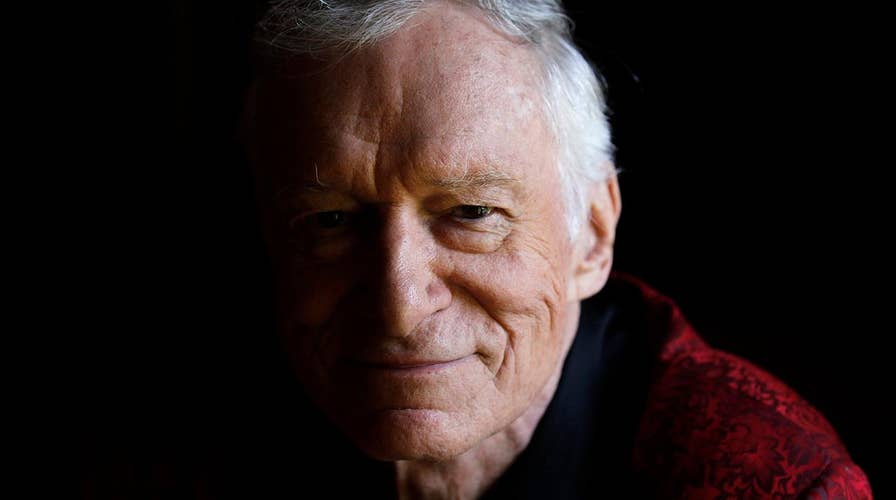Playboy founder Hugh Hefner's legacy remembered
William La Jeunesse reports from Los Angeles on the life of the magazine pioneer who died of natural causes at 91.
Hugh Hefner, founder of Playboy magazine, died Wednesday at the Playboy Mansion in Los Angeles, surrounded by loved ones, the magazine said in a statement. He was 91.
He died from natural causes, the statement read.
With a bon vivant philosophy, urbane sophistication and sheer marketing brilliance, Hefner was an icon for the sexual revolution of the 1960s, the man-about-town embodiment of the lifestyle he promoted with gusto and a sly wink to readers.
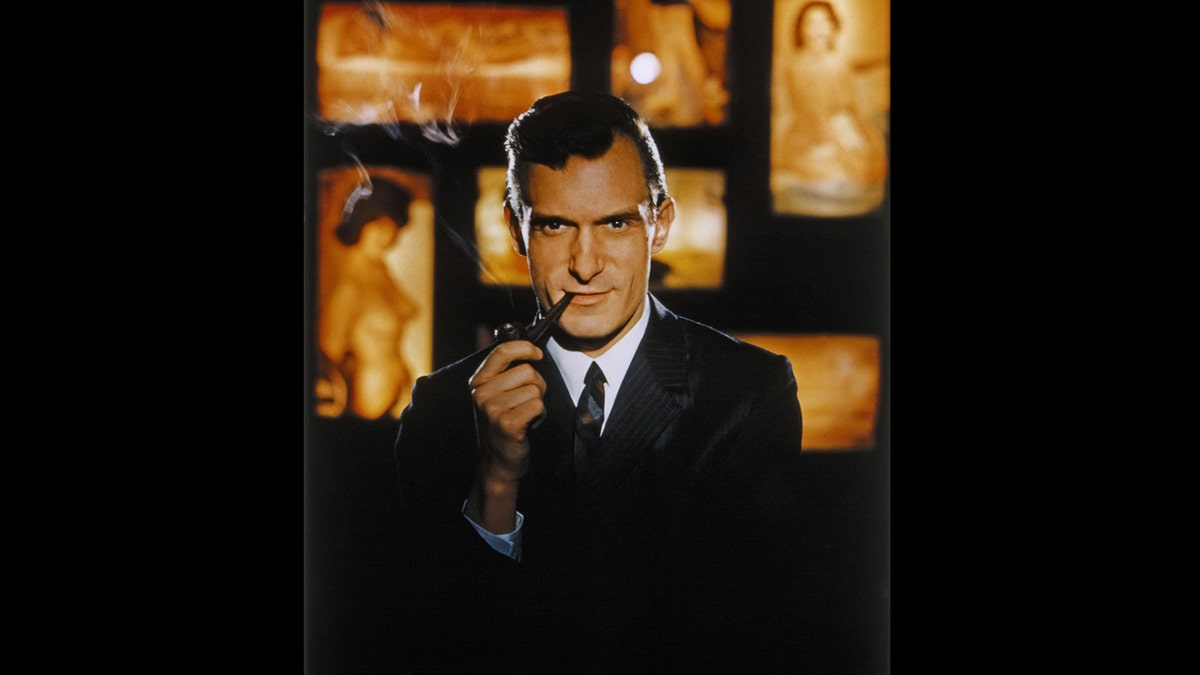
AP
Photos: Playboy bunnies through the years
Asked by the New York Times in 1992 of what he was proudest, Hefner responded: "That I changed attitudes toward sex. That nice people can live together now. That I decontaminated the notion of premarital sex. That gives me great satisfaction."
When he turned 85, he cheerfully observed, "You're as young as the girl you feel."
After a round of celebrity cheating by Tiger Woods and Jesse James was exposed, Hefner summed up his own attitude: "I had a lot of girlfriends, but it's not the same as cheating. I don't cheat. I am very open about what I do. ... I think that when you are in a relationship, you should be honest. The real immorality of infidelity is the lying."
The man known to millions simply as "Hef" was born April 9, 1926, in Chicago, the elder of two sons.
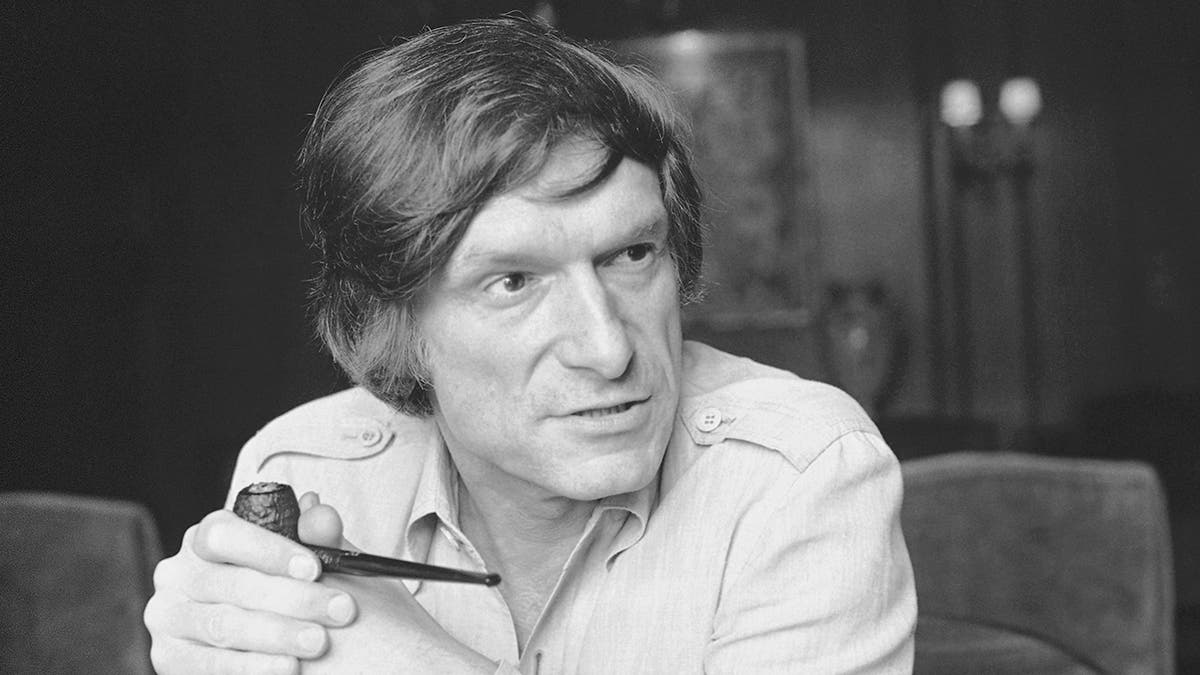
In this file photo, Playboy founder Hugh Hefner poses for a photo on May 7, 1977. (AP)
Photos: Inside the Playboy Mansion
His parents were strict Methodists and Hefner went to Chicago schools before joining the Army, attending the Chicago Art Institute and graduating from the University of Illinois at Champaign-Urbana with a degree in psychology.
"Part of the reason that I am who I am is my Puritan roots run deep," he told the Associated Press in 2011. "My folks are Puritan. My folks are prohibitionists. There was no drinking in my home. No discussion of sex. And I think I saw the hurtful and hypocritical side of that from very early on. "
After working first as a copywriter for "Esquire" – where he reportedly left because he didn't get a $5 raise – Hefner decided to start his own publication and he raised $8,000 from 45 investors to launch "Playboy" in December 1953. (He had originally planned to call it "Stag Night," but was forced to change the name to avoid trademark infringement.)
It was produced in his kitchen and carried no date because he wasn't sure there would be a second issue.
But with the trademark intuition and shrewdness that seemed to always ensure his success, Hefner had acquired a nude photo of Marilyn Monroe for the centerfold, taken before the start of her film career.
The magazine sold 50,000 copies, making it an immediate success. (Hefner later bought the crypt next to Monroe's in a Los Angeles cemetery.)
An empire was launched, with Hefner – who divorced first wife Mildred Williams in 1959 – as its charismatic, cosmopolitan head.
Often pictured in pajamas – or a silk smoking jacket - and smoking a pipe, Hefner personally promoted the Playboy philosophy as the magazine became an amalgam of nude photographs of gorgeous women and intellectual writing. ("I just read Playboy for the articles," was a standard, if joking, line at the time.)
"If you had to sum up the idea of Playboy, it is anti-Puritanism," he was quoted as saying as the country's mood became more hedonistic.
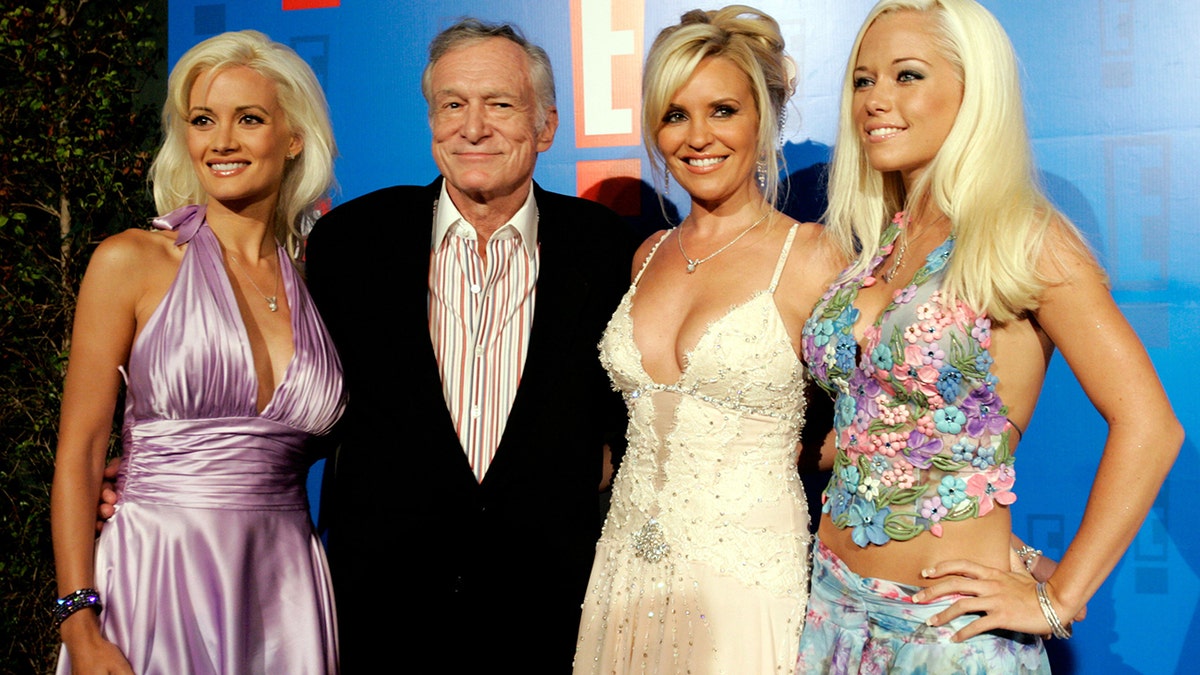
Playboy founder Hugh Hefner (2nd L) and his three girlfriends Holly Madison (L), Bridget Marquardt (2nd R) and Kendra Wilkinson (R) arrive at the E! Entertainment television summer splash party at the Tropicana bar at the Roosevelt hotel in Hollywood. (Reuters)
"Not just in regard to sex but the whole range of play and pleasure."
In addition to the magazine, there were Playboy clubs, with "bunny" waitresses, two short-lived television series and a host of other Playboy Enterprises projects. From 2005-2010, a reality show detailing Hefner's relationship with then-girlfriends Kendra Wilkinson, Holly Madison and Bridget Marquardt ran on E! called "The Girls Next Door."
In 1975, Hefner moved to Los Angeles and in 1985, he suffered a minor stroke.
In 1989, he married longtime girlfriend Kimberly Conrad and for a while became a family man with two young sons before the couple separated in 1998.
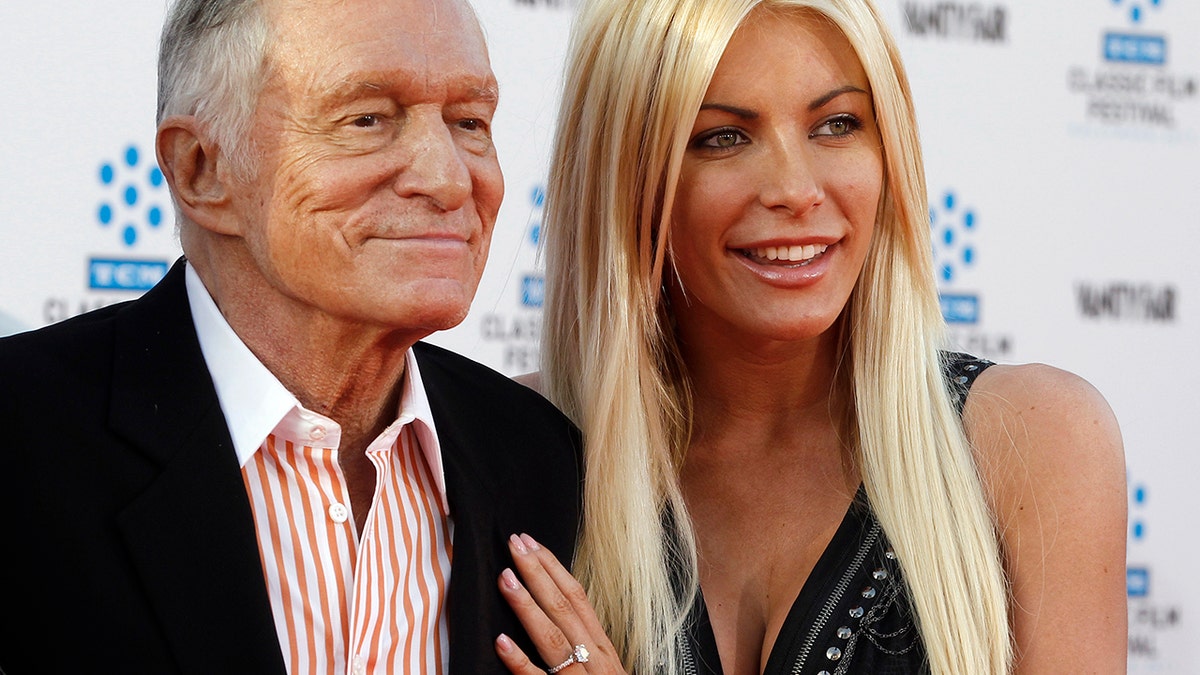
Hugh Hefner and Playboy Playmate Crystal Harris, arrive at the opening night gala of the 2011 TCM Classic Film Festival featuring a screening of a restoration of 'An American In Paris' in Hollywood, California April 28, 2011. (REUTERS)
In 2005, a reality show starring Hefner and his girlfriends, “The Girls Next Door,” premiered on the E! Network. The show became an instant hit for the network, running for six seasons, and introducing the Playboy founder to a new, younger generation of fans.
"My father lived an exceptional and impactful life as a media and cultural pioneer and a leading voice behind some of the most significant social and cultural movements of our time in advocating free speech, civil rights and sexual freedom," Cooper Hefner, Hefner's son and chief creative officer at Playboy Enterprises, said in a statement.
Conrad and Hefner's divorce was finalized in 2010 and he proposed in 2011 to 24-year-old Crystal Harris, a former Playmate. Harris called off the wedding days before the ceremony, but changed her mind and they married at the end of 2012.
In August 2016, Hefner sold the iconic Playboy Mansion for $100 million. The deal was contingent on the understanding that the Playboy founder would live in the Mansion until the time of his death.
Hefner is survived by his wife Crystal as well as his daughter, Christie; and his sons, David, Marston and Cooper.
Playboy released no information on memorial plans, but Hefner owns a burial plot at a Los Angeles cemetery next to Marilyn Monroe.
The Playboy website was taken over on Thursday with a simple tribute to the man behind the company that featured an image of a younger Hefner and the quote, "Life is too short to be living somebody else's dreams."
The Associated Press contributed to this report.
